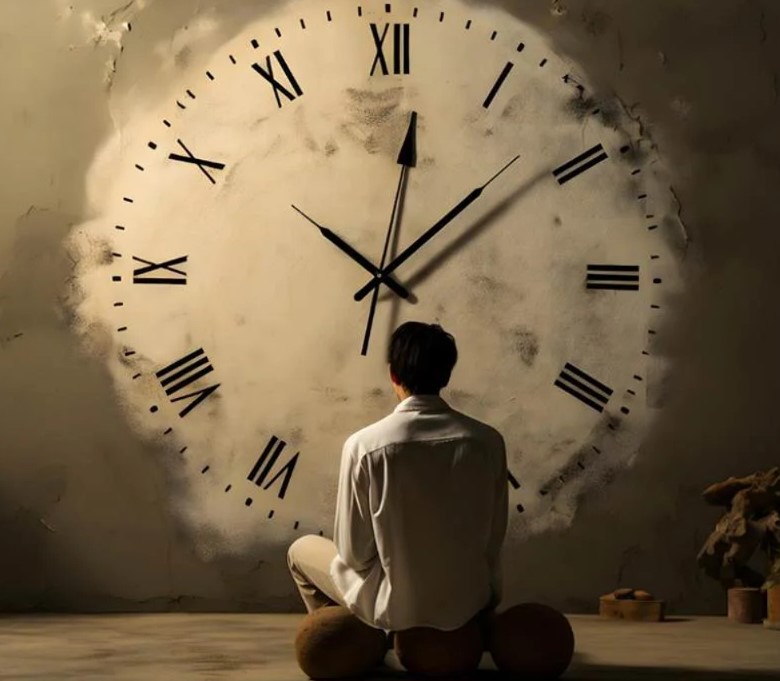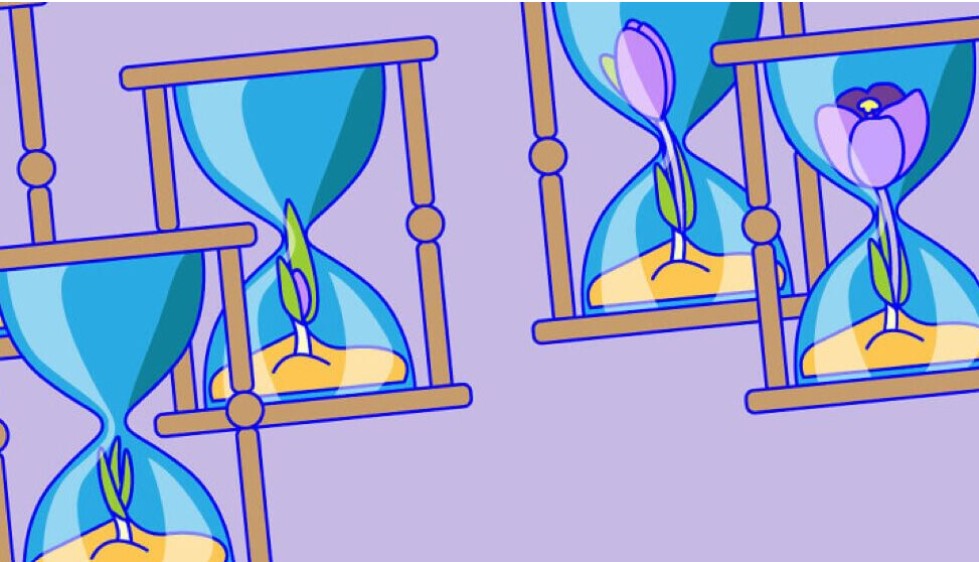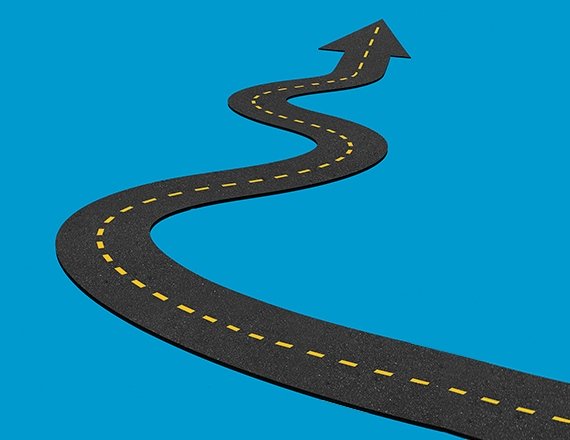The Power Of Patience
Why You Need The World's Toughest Quality
The power of patience is something that I have struggled with for most of my life. It arises from the gap between what I want to happen and what does happen.
In the English language the word patience is derived from the Old French word "pacience" and the Latin "patientia" and it means endurance and the capacity to live with misfortune, adversities and in practicial terms the ability to live with things not going the way we want them to.
Patience does not come naturally, we are hardwired for instant gratification which means that it requires effort and commitment to benefit from the power of patience
Here are three reasons why you need the world's toughest quality.
1. Patience with people

Patience can be applied to people in the sense of being tolerant, non-judgemental, flexible and accepting of other people.
By taking the time to listen attentively and consider different perspectives, we can strengthen our connections and resolve conflicts more effectively.
The power of patience in relationships is that it teaches us to appreciate the complexities of human nature and to approach our interactions with others with empathy, insight and understanding.
As the old African saying expresses it:
If you want to go fast, go alone. If you want to go far, go together.
2. Patience with circumstances
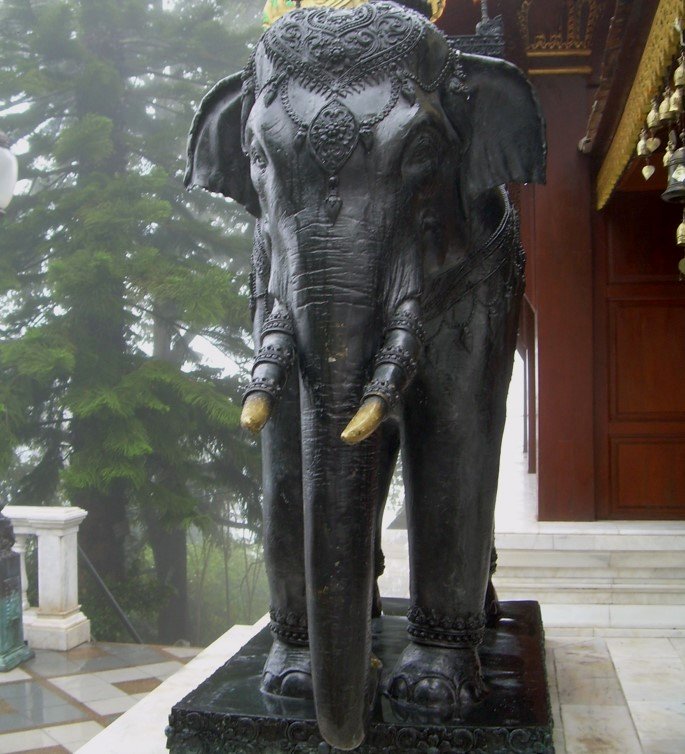
In everyday life, patience is often overshadowed by the desire for immediate results.
We live in an era of instant
gratification, we want microwave results where waiting even a few seconds for a webpage to load
can feel like an eternity.
From a bigger picture perspective and beyond the annoyance of everyday frustrations, the power of patience in difficult circumstances is that it fosters resilience in the face of adversity which allows us to weather setbacks and failures without losing sight of our objectives.
Patient people are resilient people who persist in their efforts.
One of the Greek source words for patience is "hupomene", which transates as "endurance" or "to stay under". It gives the picture of a person who is under a heavy load but has resolved to stay put in that one spot, regardless of how hard or heavy that load gets.
This is a person who has the endurance to stay calm and keep doing what they are supposed to do even when tempted to get frustrated and give up.
In zen practice this is a mindset of total determination and unshakeable will that does not get stuck, trapped or distracted.
It is called "Immovable Mind" [Fudoshin] and it represents the highest level of focus as it is a mindset that is not affected by any external factors and cannot be stopped on the way to its destination.
It is also a mindset that is not affected by internal factors such as resistance, doubt and fear, or what it thinks is "supposed to happen" it is completely confident of reaching its destination.
This is a mindset of patience in accepting that reaching the result takes time, and a mindset of persistence in the determination to stick with it when things are difficult.
To paraphrase
Calvin Coolidge:
Nothing in the world can take the place of patience. Patience and persistence are omnipotent.
3. Patience as a virtue

The power of patience is not merely the ability to wait, it's a virtue that encompasses self-control, perseverance, and a long-term perspective.
It's about understanding that worthwhile achievements often take time and effort to materialize and is the quality that allows that to happen.
Whether in personal goals, professional pursuits, or relationships, patience is a key that can unlock the doors to success.
As Nassim Taleb has observed:
Life is non-linear, which makes the rewards of continued effort disproportionately big, but because progress on the extra mile isn’t clearly visible, most people give up too early.
Obstacles To The Power Of Patience
Delayed gratification
We have established that the foundation of the power of
patience is endurance, this is a preparedness to wait calmly in the face
of frustration or adversity together with the capability to persist for
as long as it takes.
To be able to benefit from the power of patience in the big picture circumstances of life we have to be able to accept delayed gratification. These big picture circumstances are the big objectives in our lives where we adopt the long game approach that sacrifices short term gains for long-term wins. This can be in any area of life that is important to us. But,
there
is one major problem with all this, and it is nothing to do with
will-power, commitment or focus or any form of conscious effort and it
is that the human brain has not yet evolved to accommodate delayed
gratification which is bad news because we live in a "delayed return
environment" where the ability to accept deferred gratification is
critical. But given that our brains are hardwired for instant gratification, they process and
evaluate potential rewards by ascribing a higher value to the present and a discount to the future, so there is a conflict. From an evolutionary perspective, back when we were living on the
plains of Africa most of our decisions had an immediate impact and thus
our focus was on the present or near future. In life on the Savannah plains of
Africa it made sense to place a premium on instant gratification. A culture of "I want it now!" So much
of modern life is governed by immediate access to whatever we want
and the instant gratification of our needs, and this is facilitated and exacerbated by ever-evolving digital technology. The
biggest obstacle to the power of patience is the commonest reaction of
impatience and this begins with a set of perceptions and beliefs: The emotional chain of negativity As these reactions, perceptions and beliefs arise they trigger an emotional chain of negativity comprising 3 elements: These elements in the
emotional chain of negativity
are not only
immense obstacles to experiencing the power of patience they sabotage it. Underlying
these reactions in the emotional chain of negativity, and the ultimate
consequence of the "I want it now " culture, is our failure to accept
delayed gratification. In order to understand and counter this
problem we need to understand how we are hardwired to behave in this
way, and what steps we can take to counter this. The earliest remains of modern humans are approximately two
hundred thousand years old and they had a brain relatively similar to
ours.
The modern human brain spent hundreds of
thousands of years evolving for the immediate return environment - and
suddenly it changed dramatically to a delayed returns environment. As James Clear succinctly puts it:
Professor William Irvine explains evolutionary psychology and thinking systems in our brain:
How Hardwired Is Human Behavior - Harvard Business Review
Practicing The Power Of Patience
In my experience there are 3 important aspects to practicing the power of patience:
- Mindset
- Belief
- Strategy
[1] Mindset for practicing the power of patience
The foundation for practicing the power of patience and the source of your motivation to do so is the law of response and outcome - which simply means that the outcomes that you
experience in your life are determined by your responses to the events in your life.
And yet powerful as this motivation is, it remains an aspiration, a figment of wishful thinking without clear action based on the necessary steps to make it happen.
If you get snagged by emotional reactivity you get hijacked by your emotions, such as anger, fear, frustration, irritation and ultimately despair.
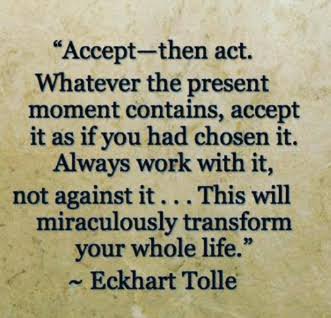
The first step to practising patience is mindfulness which will enable you to become aware of your emotions and your reactions, and with practice to put some space between the arising emotional reaction and your chosen response. Try this:
# As you feel your emotional reaction arising just focus all of your attention on your breathing - notice and feel the sensation of your in-breath and out-breath - focus on 3 cycles of breaths
# Focus 100% on this present moment, right now and accept what is happening and how you feel about it right now, say: "I accept this situation... I accept that I am feeling...."
# Focus on your breathing for 3 more cycles of breaths.
The second step is to make the first step a habit. It requires conscious will power to take the first step and be mindful, but if you make this into a habit it becomes your automatic, unconscious, default setting.
James Clear calls this forming an atomic habit because by making this small change in how you respond, the positive benefits will compound into remarkable results if you persist with it consistently over many years.
[2] Beliefs that support the power of patience

A belief is something that we accept and believe to be true, but that is not necessarily something that can be proven to be true.
Beliefs have a basic three-part structure: Cause –> Effect –> Meaning.
So, if THIS causes ... then, the effect is... and THAT means...
Beliefs, unconscious or not, are shaping the events in your life because they determine your response to your experiences.
For much of my life I didn't understand that change comes from within, I used to believe that change was something that happened to me in response to an external event.
Eventually I came to realise the truth of Carl Jung's famous saying:
"Until you make the unconscious conscious, it will direct your life and you will call it fate."
Until the
beliefs that drive your response to these events are recognised and if negative are released, the
outcomes you experience won't change and you will remain on the ferris wheel of emotional reactivity.
It is not my purpose in this article or this website to propogate any singular belief system but rather to draw insight and practical resources from across the spectrum of a number of established perspectives. Here are some that you may wish to consider and that I find helpful:
- This Too Shall Pass - recognise and learn to live with impermanence.
- Focus On Things You Can Control, Ignore The Rest - the practice of stoicism.
- Existentialism - live authentically, make your choices and accept your responsibility.
- Insights from Christianity - patience embodies an active trust in God's sovereignty and wisdom involving the surrendering of your will to God's timing, even when circumstances seem bleak or uncertain. Patience is a courageous act of faith in God's good care.
- Insights from Buddhism - patience includes forbearance, endurance, and tolerance. It is a practical skill honed through practicing mindfulness which will enable you to observe your reactions to challenging situations and respond with patience and clarity.
[3] Strategies for practicing the power of patience
There are certain types of situation where patience is essential but difficult to practice.
I am
going to highlight 2 scenarios where I have found it is extremely
helpful to have strategies in place, based on other's experiences, to
enable you to experience the power of patience in these testing
situations.
Times of Change and Transition
There are times in life where we experience the impacts of change and quite often as a result of change that has been imposed upon us.
In these situations it is important and helpful to realise that firstly we will experience a period [sometimes quite lengthy] where we undergo a transition process during which we make the psychological and emotional adjustments to the changes.
This transition process is a recognised and well documented experience.
Secondly, it is also helpful and important to understand that there are distinct phases to the transition process.
The following 3 articles cover this process fairly comprehensively, provide a route map and a range of proven resources for successfully navigating these experiences. These are all based on my own personal life and business experiences over the past 40 years.
- Lost In Transition - Lost, Stuck & Going Round In Circles
- The Wilderness Years - 3 Keys To An Exit
- Recognising Limbo As A Stage Of Transition
When Playing The Long Game
The long game describes an approach to any area of life that sacrifices short term gains for long-term wins.
It is about having a long term goal and taking the necessary steps now to set yourself up for long term success.
If you play the long game you delay gratification now to get more later, you stop focusing on the short term and you think ahead.
This can be hard and it means being prepared to make a lot of mistakes and errors and even on occasions being prepared to look stupid.
The following article sets the scene for playing the long game and the article that follows gives you a route map for how to develop the power of patience in circumstances that are far beyond most people's experience...
- The Long Game - Delay Gains Now To Get More Later
- The Challenges Of The Road Less Traveled - When Playing The Long Game
Next Article:
Demonizing The Other and Personal Acts Of Compassion
Further Reading:
If you are interested in taking the practice of the power of patience to a whole new level then you might be interested in this:
Standing In The Gap Between No Longer And Not Yet
Finite And Infinite Games - Dazed, Confused & Ultimately Transcendent
Return from "The Power Of Patience" to:
Inner Mastery For Outer Impact or Walking The Talk
LATEST ARTICLES
The Battle For Your Mind - How To Win Inner Freedom In A Digital Age Of Distraction
 From External Events to Inner Events. We often think of “events” as things that happen out there: the traffic jam, the rude comment, the delayed email reply. But what truly shapes our experience is wh…
From External Events to Inner Events. We often think of “events” as things that happen out there: the traffic jam, the rude comment, the delayed email reply. But what truly shapes our experience is wh…How to See Your Thoughts Without Becoming the Story
 A Practical Guide to Thought-Awareness. You can spend your life inside the stories of your mind without ever learning how to see your thoughts clearly and objectively. Most of the stuff we tell oursel…
A Practical Guide to Thought-Awareness. You can spend your life inside the stories of your mind without ever learning how to see your thoughts clearly and objectively. Most of the stuff we tell oursel…The Collison Decision Matrix - A Simple Framework for Better Choices
 The Collison Decision Matrix Is A Practical Everyday Thinking Tool. Most of us spend a surprising amount of time worrying about decisions. From small ones such as what to wear, what to eat, what to te…
The Collison Decision Matrix Is A Practical Everyday Thinking Tool. Most of us spend a surprising amount of time worrying about decisions. From small ones such as what to wear, what to eat, what to te…The Power Of Asking The Right Question
 The Power Of Asking The Right Question Lies In The Quest For Insight. To experience the power of asking the right question you must develop the practice of asking questions. The best way to improve th…
The Power Of Asking The Right Question Lies In The Quest For Insight. To experience the power of asking the right question you must develop the practice of asking questions. The best way to improve th…Site Pathways
 Here is a site pathway to help new readers of Zen-Tools navigate the material on this site. Each pathway is based around one of the many key themes covered on this site and contain a 150 word introduc…
Here is a site pathway to help new readers of Zen-Tools navigate the material on this site. Each pathway is based around one of the many key themes covered on this site and contain a 150 word introduc…How To Live With Contradiction - Beyond Thought Let Stillness Speak
 A major impact on so many peoples' lives is the situational contradiction of unfilled realistic expectations. So where does all this leave us? Well here we are, with mental equipment that is more lim…
A major impact on so many peoples' lives is the situational contradiction of unfilled realistic expectations. So where does all this leave us? Well here we are, with mental equipment that is more lim…How To Trust The Process Of Mindfulness - Right Now
 In mindfulness, the process isn’t some distant goal — it's what is happening right now. When we talk about how to trust the process of mindfulness the credibility of the process is heavily dependent…
In mindfulness, the process isn’t some distant goal — it's what is happening right now. When we talk about how to trust the process of mindfulness the credibility of the process is heavily dependent…Inner Mastery For Outer Impact - Mental Clarity For Effective Action
 Insights only matter if they translate into consistent action. In a world crowded with quick fixes and motivational soundbites, the theme “Inner Mastery for Outer Impact” calls us to something more e…
Insights only matter if they translate into consistent action. In a world crowded with quick fixes and motivational soundbites, the theme “Inner Mastery for Outer Impact” calls us to something more e…The Wise Advocate - Helping You Achieve The Very Best Outcome
 The focus of your attention in critical moments of choice either builds or restricts your capacity for achieving the best outcome. When we talk of 'The Wise Advocate' its easy to think of the consigl…
The focus of your attention in critical moments of choice either builds or restricts your capacity for achieving the best outcome. When we talk of 'The Wise Advocate' its easy to think of the consigl…Trust The Process - Beyond The Cliche
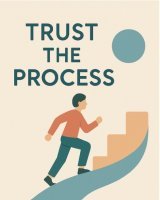 The phrase "trust the process" has become a cliche, the woo-woo mantra of the "self help" industry. Those three little words feel like they ought to mean something useful but hidden behind them are a…
The phrase "trust the process" has become a cliche, the woo-woo mantra of the "self help" industry. Those three little words feel like they ought to mean something useful but hidden behind them are a…The Dopamine Delusion - Why Anticipation Beats Achievement
 The thrill we feel is not in the having, but in the wanting. The more we have, the more we want. The more things we acquire and the easier things get for us, the more discontent we feel. The more spo…
The thrill we feel is not in the having, but in the wanting. The more we have, the more we want. The more things we acquire and the easier things get for us, the more discontent we feel. The more spo…The Power Of Silence Is Experienced In Your Use Of Language
 Practise the "Beneficial Neurological Delay" for optimal comprehension. The power of silence is experienced in your use of language, specifically: - How you formulate the words you use to think and in…
Practise the "Beneficial Neurological Delay" for optimal comprehension. The power of silence is experienced in your use of language, specifically: - How you formulate the words you use to think and in…
